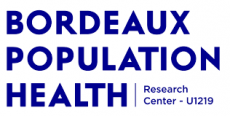Female sex hormones and symptoms of obstructive sleep apnea in European women of a population-based cohort
Résumé
Background The prevalence of obstructive sleep apnea is higher in women after menopause. This is suggested to be a result of an altered sex hormone balance but has so far not been confirmed in a population-based study. Objective To investigate whether serum concentration of estrogens and progesterone are associated with the prevalence of sleep apnea symptoms in middle-aged women of the general population. Methods We analyzed data from 774 women (40–67 years) from 15 study centers in seven countries participating in the second follow-up of the European Community Respiratory Health Survey (2010–2012). Multiple logistic regression models were fitted with self-reported symptoms of sleep apnea as outcomes and serum concentrations of various estrogens and progesterone as predictors. All analyses were adjusted for relevant covariates including age, BMI, education, study center, smoking habits, and reproductive age. Results Among all included women, a doubling of serum concentrations of estrone and progesterone was associated with 19% respectively 9% decreased odds of snoring. Among snorers, a doubling of the concentrations of 17β-estradiol, estrone and estrone 3-sulfate was associated with 18%, 23% and 17% decreased odds of breathing irregularly, and a doubling of the progesterone concentration was further associated with 12% decreased odds of waking up suddenly with a chocking sensation. Other evaluated associations were not statistically significant. Conclusions Middle-aged women with low serum estrogen and progesterone levels are more likely to snore and report symptoms of obstructive sleep apnea.
Origine : Fichiers éditeurs autorisés sur une archive ouverte
licence : CC BY - Paternité
licence : CC BY - Paternité



